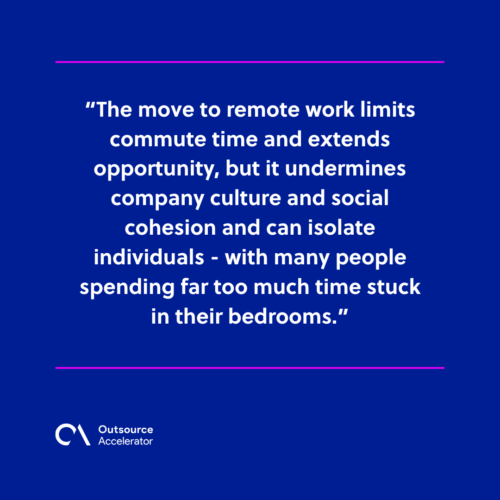The world of employment is fast evolving. You can lean on us to bring you the latest insights into the ‘new norm’ of remote and global employment. Let’s go.
The ‘career-impaired’ generation
The world of employment is fast evolving. You can lean on us to bring you the latest insights into the ‘new norm’ of remote and global employment. Let’s go.
The ‘career-impaired’ generation
The concepts of ‘work,’ ’employment,’ and ‘career’ are rapidly evolving.
Everyone is jostling to redefine employment norms in the wake of the COVID pandemic.
But is this employment experiment creating a generation of ‘career-impaired’ youth?
We are seeing a dramatic rise in remote work, gig work, and explorations of 4-day and 3-day weeks. The Great Resignation, unionization of workplaces, and growing discontent is challenging the status quo.
“Work” as we know it may not be perfect – but maybe it is the ‘best-worst’ option we have.
The three significant trends are (i) gig and flexible work, (ii) remote work, flexi- and asynchronous hours, and (iii) startup culture.
The rise of the gig economy has meant that people can quickly and easily pick up work. It could be driving an Uber, delivering a Pizza, walking a dog, or designing a logo.
The freedom and flexibility are great, but with anything, there is usually a double-edged sword. Gig jobs are notorious for lacking benefits, underpaying, and lack of loyalty. While some freelancers can do exceptionally well, it might only be the top 1%.
The move to remote work limits commute time and extends opportunity, but it undermines company culture and social cohesion and can isolate individuals – with many people spending far too much time stuck in their bedrooms.
Startups are an amazing innovation to come out of the VC evolution – but the scrappy work environments might not provide the pedigree of learning and professional development that more formal careers offer (think banker, lawyer, doctor). If a startup becomes highly successful, then arguably none of that matters, but the vast majority (i.e., 95%) of startups fail – meaning that some people will inevitably bounce from startup failure to startup failure – through no fault of their own.
All of this leaves people with less consistent work experience, a less formal work environment from which to model their future selves, and fewer accrued benefits. Gig jobs are easy to get but also easy to bounce out of. Remote jobs pay the bills, but they often lack cohesion, so loyalty is low. Ultimately, the easy-come-easy-go generation has a lot of job hopping and a 50-page CV, uninspiring part-time jobs. That’s career impairment.
My concern is that people might be choosing their career path based on the easiest route – and not the best, or most fulfilling, route.
The remote experiment
It is hard to get clear data on remote work’s pros and cons. Regardless, it is here to stay.
Last week, the US was shocked by the results of the NAEP’s national test scores for students. Known as the “Nation’s Report Card,” it found that fourth- and eighth-graders fell behind in reading and had the largest-ever decline in math. The blame was planted squarely on remote learning due to the Pandemic. The US federal government has now invested $123 Bn to rectify the impact of remote education for “academic recovery.”
Kids are not adults, and education is different from a career, but there may be a valuable corollary here.
The question for your business
Are you seeing an increase in career impairment as you hire?


 Independent
Independent





















